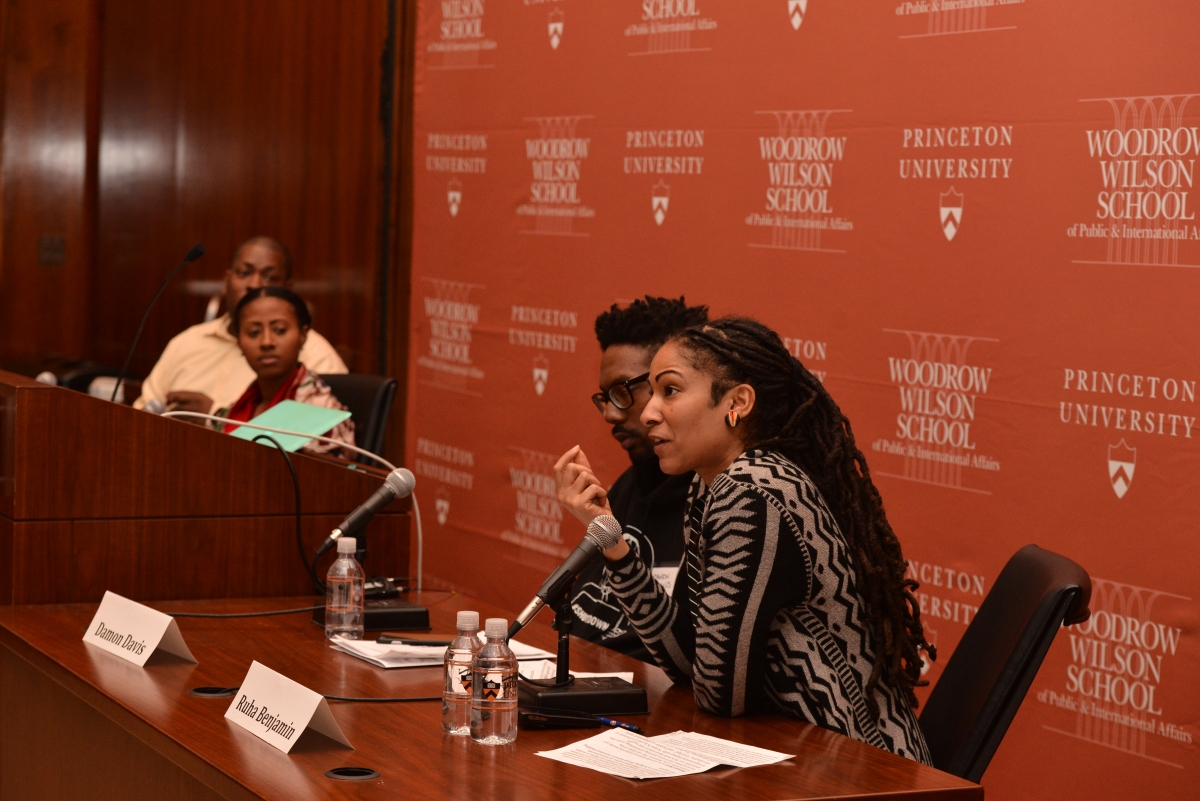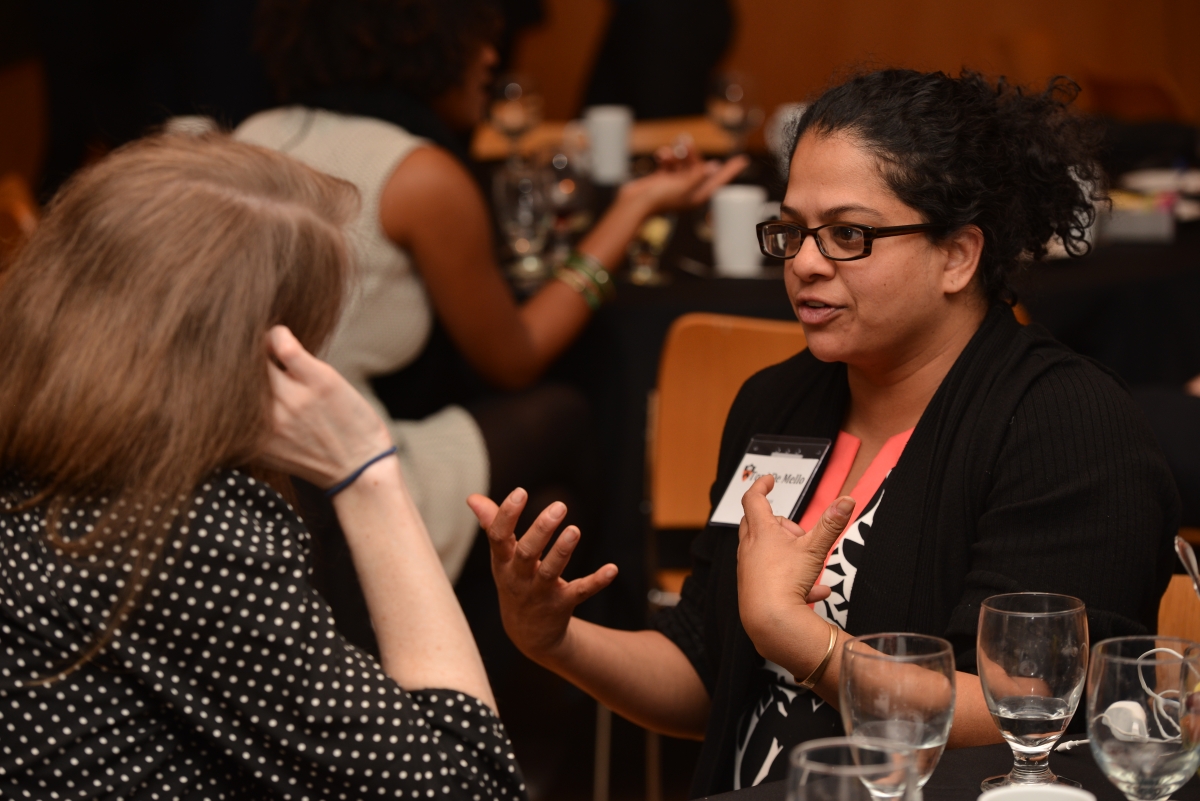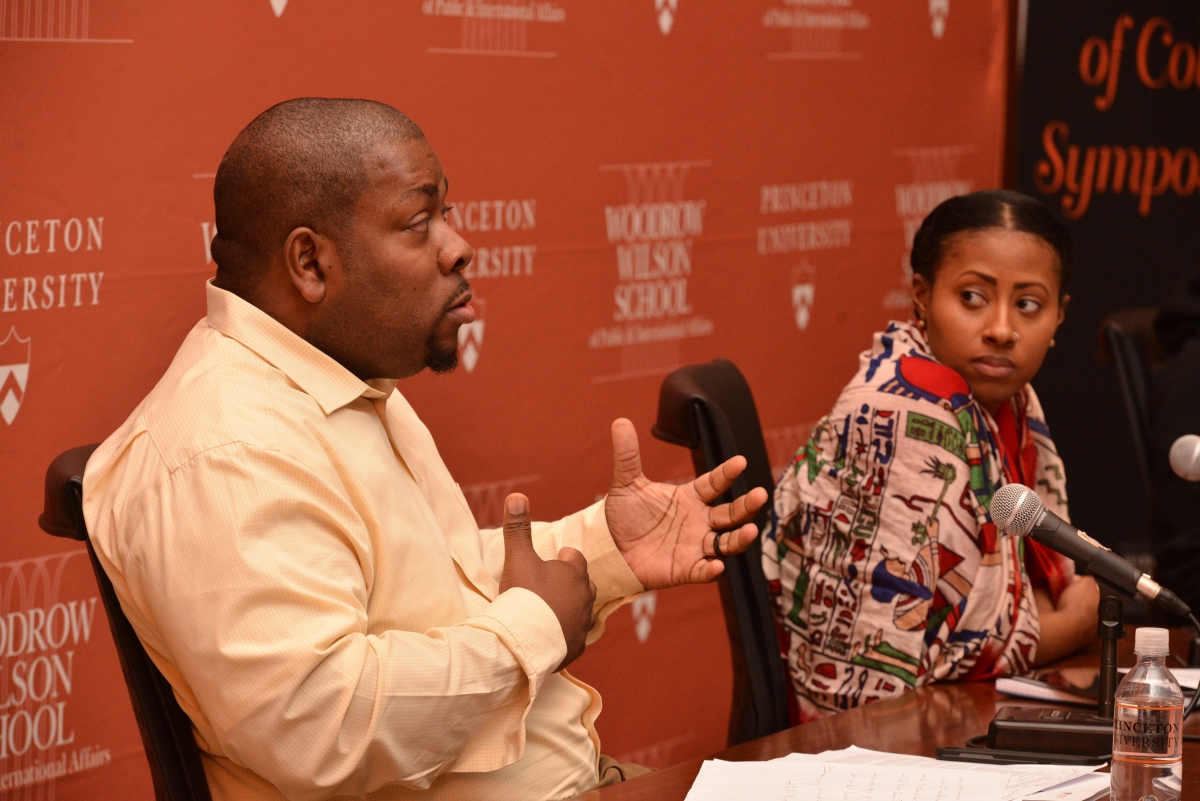In the mid-1990s, graduate students at the Woodrow Wilson School of Public and International Affairs recognized two critical needs among students of color: a space to discuss the challenges students of color might face as public service leaders and dedicated time to connect with those who’d gone before them—alumni who’d already carved out a path in the policy arena.
These needs are what led Edward P. Bullard, a former MPA student who passed away in 1998, and Jeffrey Prieto MPA-URP ’97, who now serves as general counsel for the U.S. Department of Agriculture, to create Students and Alumni of Color (SAOC), a group for current students and alumni of color at Princeton University’s Woodrow Wilson School of Public and International Affairs.
Motivated by a passion to foster relationships, Bullard and Prieto wanted students and alumni to have opportunities to discuss the social and political issues related to the professional development of students of color. Their work in the mid-90s planted the seeds for an annual event—which is now called the SAOC Symposium—where alumni and students can share their experiences, successes and challenges.
This year the SAOC Symposium celebrates its 20th anniversary. On April 9 and 10, students, alumni and other guests will gather in Robertson Hall to discuss “Revolution and Reform: Balancing Approaches to Institutional Change.” Through panel discussions, participants will explore how public service leaders engage in institutional change from grassroots activism to policy implementation.
“Reflecting upon the mission of the annual symposium, the SAOC Planning Committee wanted a theme that would capture this year’s milestone anniversary and the current activism on campus and around the country,” said co-chairs Karli Bryant MPA '16 and and Renato Rocha MPA ‘16. “As policy students and alumni, how do we effectively combine revolution and reform to get meaningful institutional change? We hope the symposium will provide a space for students, alumni and the community to grapple with this important question.”
The two-day event—planned entirely by students on the SAOC Planning Committee—includes a robust agenda, featuring panel discussions comprised of Wilson School alumni and a keynote address by Princeton’s Eddie Glaude, William S. Tod Professor of Religion and African American Studies and chair of the Center for African American Studies. Glaude’s address will focus on his new book, “Democracy in Black: How Race Still Enslaves the American Soul.”
“This year's SAOC symposium theme, exploring incremental versus revolutionary approaches to policy change, is especially timely this year,” said Gilbert Collins MPA ’99, director of Graduate Student Life at the Wilson School and the current staff liaison to SAOC. “From the Black Lives Matter movement to the unprecedented presidential campaign, we're in the middle of several national conversations about what kind of change our country needs and how we should go about making that change happen. We are fortunate to be able to assemble a collection of prominent thinkers, WWS alumni and current students to debate these issues and explore a national way forward.”

The April 9 panels will tackle such issues as “dismantling inequality in a ‘post-racial’ society” and “navigating productive forms of solidarity and ally-ship.” A networking reception in the Bernstein Gallery will end the day at Robertson, where a new exhibit on Woodrow Wilson—titled “In the Nation’s Service? Woodrow Wilson Revisited”—will be on display. Later, an SAOC Social at Frist Campus Center will provide time for informal conversations between students, alumni and admitted students—who will be visiting the School as part of its “Admit Weekend,” in which newly admitted graduate students visit the School.
On April 10, the half-day programming includes an alumni-only breakfast with Dean Cecilia Rouse, followed by a series of breakout sessions for alumni and current students titled, “Woodrow Wilson: Then, Now and Tomorrow.”
“The annual SAOC Symposium is a great way for our alumni to see how the School has changed and adapted over the years,” said John Templeton, associate dean of graduate admissions at the Wilson School. “It’s another way in which the Woodrow Wilson School creates bonds of family.”
A special feature of the symposium is the Edward P. Bullard Distinguished Alumnus Award, which is presented during the dinner on the first day of the symposium. This award is given annually to a Wilson School alumnus who works professionally with communities of color and who serves as a mentor to current students of color at the Wilson School. Chosen by the SAOC Committee, this award honors the legacy of Bullard, who alongside Prieto, was a catalyst for connecting students and alumni of color.
This year’s recipient of the Bullard Award is José Quiñonez MPA ‘98, a passionate advocate for social justice. Quiñonez is the founding executive director of the Mission Asset Fund, an organization that aims to support a full continuum of asset-building opportunities for low-income and immigrant families in San Francisco’s historic Mission District. Past year recipients can be found here.

“My involvement with SAOC was motivated by my classmate, Ed Bullard, who passed away in 1998,” Prieto said. “I can still hear Ed talk about the need for a forum where alumni and students of color could share experiences and learn from each other. I am gratified that Ed’s vision has been realized for the past 20 years.”
The annual SAOC Symposium has become a celebrated tradition that continues to bring together alumni and students in vibrant and inspiring ways. The group and committee is overseen and supported by the Graduate Program Office, and past staff directors include Templeton and Melissa Lee, assistant director of graduate admissions and social media strategist. The current staff director is Gilbert Collins, director of graduate student life.
“SAOC has been a very significant part of the WWS student experience for the past 20 years,” Lee said. “It is one of the events at the Wilson School that I am most proud to have been a part of because it brings together our students and alumni with diverse backgrounds and experiences to help develop solutions to policy issues that are most prevalent in communities of color.”
Past themes of the SAOC Symposium include “From Access to Action: Building Momentum for the New Millennium,” “Old Challenges, New Realities: Progress for People of Color,” “Choices and Challenges: A Journey Toward Change,” among others. Each year, two to three co-chairs lead the SAOC Planning Committee to decide on a theme, speaker line-up and the winner of the Bullard Award. Overall, approximately 20 students work to put the event together, taking care of all details from logistics to communications and outreach.
For more information about SAOC, click here.
Photos courtesy of SAOC.


